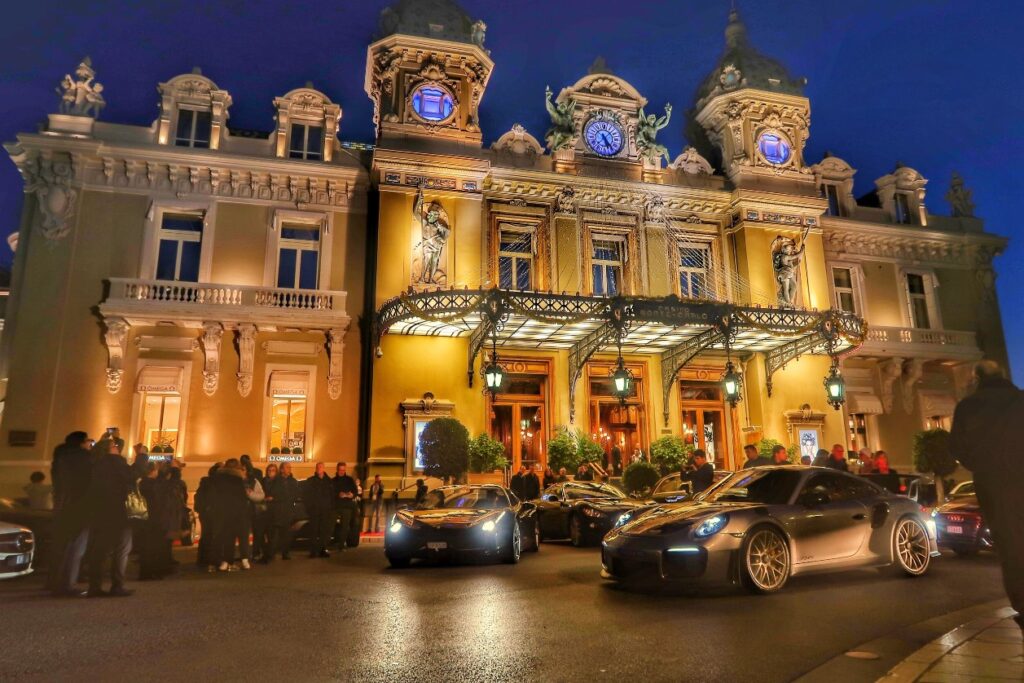Gambling Games and Their Role in Cultural Trends

Gambling games have long captured the interest of individuals around the globe, becoming an important part of both fun and culture. From the sparkling lights of Las Vegas to the engaging experience of internet gambling, these activities evoke excitement, risk, and sometimes even a sense of remembrance. They are more than just entertainments; they have woven themselves into the tapestry of human experience, influencing everything from cinema and songs to fashion and writing.
The allure of casino games transcends the gambling aspect, tapping into wider themes of serendipity, chance, and human behavior. As players convene around a card table or rotate the roulette wheel, they engage in an timeless ritual that resonates with our shared desire for excitement and unpredictability. This fascination has led to the emergence of numerous references in movies, tracks, and video games, showcasing how deeply entrenched these pastimes are in pop culture. Whether it is the pressure of a traditional robbery film or the lively nightlife portrayed in recordings, casino games have carved out a substantial role that reflects our connection with reward.
Social Importance of Gambling Games
Gambling activities have played a pivotal role in cultural aspects throughout the ages. Stemming from ancient civilizations, games of chance were often linked to ceremonies or events. For example, early forms of gambling can be traced back to ancient China and the Romans, where dice games and betting on outcomes were common pastimes. These activities not only served as entertainment but also as methods of connecting people, facilitating connections among people within societies.
As cultures evolved, so did the sophistication and organization of casino games. The creation of formal casinos in the 17th century, particularly in the Italian region, marked a notable shift in how games were viewed and structured. With specific spaces for gambling, the casino became a social hub where patrons from various backgrounds gathered. This change contributed to the validation of the industry, transforming it from a mere pastime into an organized industry that influenced economy and policy.
The impact of casino games on mainstream culture cannot be overlooked. As they were popularized in books and movies, games such as Texas Hold’em and 21 became icons of risk, luck, and tactics. Famous characters and narratives have developed around these games, illustrating societal attitudes towards fortune, prosperity, and immorality. This interest with gambling activities has permeated various forms of media, cementing their place in the collective consciousness and connecting them to broader cultural narratives throughout history.
Portrayal of Gambling Games in Media
Casino games have long been a popular theme in various forms of media, reflecting both the thrill and nuances of the world of gambling. Films such as Ocean’s Eleven and Casino Royale portray individuals who navigate high-stakes environments, showcasing not only the attractiveness of the gambling environment but also the strategies and judgments that come with playing popular games like Texas Hold’em and 21. These movies often dramatize the thrill of winning and the potential consequences of losing, encapsulating the dangers involved in betting.
TV programs have also explored the universe of gambling activities, often integrating them into the plot as a context for character arcs and tension. Series like Las Vegas depict the lives of gambling employees and patrons, highlighting the dynamic, often tumultuous energy of the casino floor. 98win Reality shows featuring high-stakes gambling competitions further emphasize the attraction of gambling activities, drawing viewers into the tension and strategy involved in each game. Through these depictions, media not only engages but also sparks conversations about fortune, skill, and the essence of randomness.
Gaming have increasingly included casino games into their structure, allowing players to experience the experience of gambling without monetary loss. Games within the realm of digital gaming often include virtual slots, poker, and other casino favorites, creating an engaging environment that mirrors traditional gambling. These digital representations make gambling activities accessible to a broad demographic, appealing to both players who indulge and those who enjoy the rush of simulation. As a consequence, the representation of casino games in media continues to shape cultural attitudes and cultural relevance, highlighting their function in society and culture.
Effect of Casino Games on Communities
Gambling activities have a significant effect on society, affecting multiple facets of societal norms and interpersonal behavior. They often serve as a platform for community engagement, where people gather to enjoy a shared experience. Casino trips with friends or trips to casinos become social activities that build connections and create memories. This collective aspect boosts the fun value of gambling activities, making them a favored choice for festivities and recreational pursuits.
Moreover, gambling activities have been portrayed in countless movies, TV series, and written works, influencing perceptions and opinions towards gaming and betting. Icons like James Bond playing baccarat or the intense poker scenes in films have embedded these games in the shared imagination. This representation often idealizes the lifestyle associated with casino activities, attracting new players and influencing trends in both style and conduct. These representations can ignite curiosity and lead to a more profound investigation of the intricacies of gambling.
Nonetheless, there are also negative consequences linked to the widespread appeal of casino games. The temptation of quick monetary gain can lead to gambling addiction and economic troubles for some individuals. The community must contend with these issues, promoting responsible gaming and awareness of the dangers involved. Finding a balance between the entertainment value of casino games with the potential for harm is vital to ensure that they continue to be a positive aspect of our cultural landscape.
